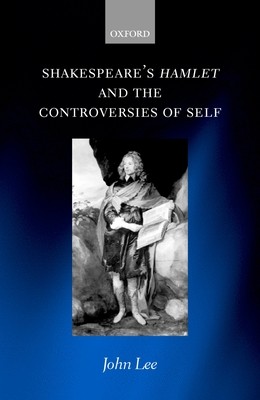
- We will send in 10–14 business days.
- Author: John Lee
- Publisher: Oxford University Press, USA
- ISBN-10: 0198185049
- ISBN-13: 9780198185048
- Format: 17.6 x 23.2 x 2.2 cm, kieti viršeliai
- Language: English
- SAVE -10% with code: EXTRA
Reviews
Description
This book offers a new approach to the discussion of English Renaissance literary subjectivity. Dissatisfied with much New Historicist and Cultural Materialistic criticism, it attempts to trace the history of the controversies of self. William Hazlitt emerges as a pioneering figure in a tradition of literary criticism which this book tries to advance. Drawing on the personal construct theory of George A. Kelly, and on the moral theory of Alasdair MacIntyre, the textual ways are traced by which "That within" Hamlet is constructed. In an argument that challenges some of the founding propositions of New Historicist and Cultural Materialist practice, the Prince is seen to have a self-constituting, as opposed to a self-fashioning, sense of self. This sense of self is neither essentialist nor transhistorical; using the work of Charles Taylor, the play is seen to be exploring a Montaignesque, as opposed to Cartesian, notion of subjectivity. The controversies of self are, in fact, an
issue within Shakespeare's play; and if the notion of Folio and Quarto Princes is allowed, it may even be at issue within the play. Hamlet debates our debate.
EXTRA 10 % discount with code: EXTRA
The promotion ends in 23d.17:16:27
The discount code is valid when purchasing from 10 €. Discounts do not stack.
- Author: John Lee
- Publisher: Oxford University Press, USA
- ISBN-10: 0198185049
- ISBN-13: 9780198185048
- Format: 17.6 x 23.2 x 2.2 cm, kieti viršeliai
- Language: English English
This book offers a new approach to the discussion of English Renaissance literary subjectivity. Dissatisfied with much New Historicist and Cultural Materialistic criticism, it attempts to trace the history of the controversies of self. William Hazlitt emerges as a pioneering figure in a tradition of literary criticism which this book tries to advance. Drawing on the personal construct theory of George A. Kelly, and on the moral theory of Alasdair MacIntyre, the textual ways are traced by which "That within" Hamlet is constructed. In an argument that challenges some of the founding propositions of New Historicist and Cultural Materialist practice, the Prince is seen to have a self-constituting, as opposed to a self-fashioning, sense of self. This sense of self is neither essentialist nor transhistorical; using the work of Charles Taylor, the play is seen to be exploring a Montaignesque, as opposed to Cartesian, notion of subjectivity. The controversies of self are, in fact, an
issue within Shakespeare's play; and if the notion of Folio and Quarto Princes is allowed, it may even be at issue within the play. Hamlet debates our debate.


Reviews